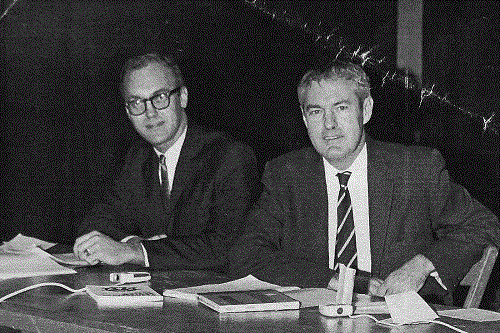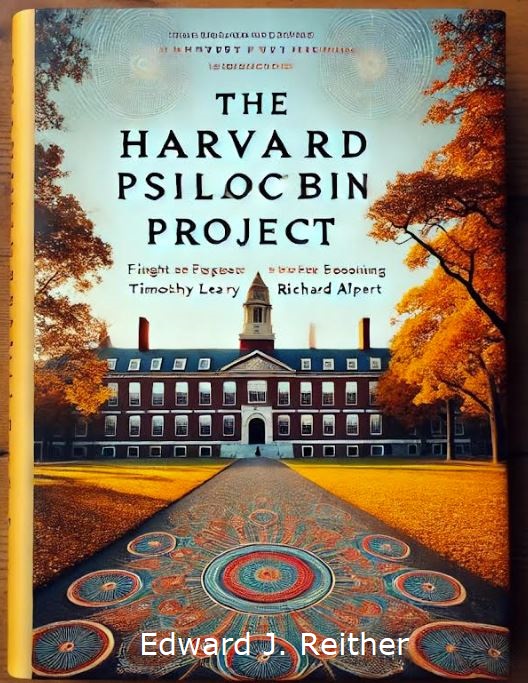
Question: What was it about the historical moment in the early ’60s to ’70s that made Timothy Leary and Richard Alpert’s psychedelic investigation at Harvard University so powerful in the generation of the ’60s and ’70s?
Response: The historical moment in the early 1960s to 1970s was characterized by a confluence of social, cultural, and political factors that contributed to the impact of Timothy Leary and Richard Alpert’s psychedelic investigation at Harvard University.
Several key elements played a role in making their work influential during that era:
Cultural Shifts and Counterculture Movement:
The 1960s was a period of significant cultural and social upheaval, marked by the rise of the counterculture movement. Young people were challenging traditional norms and questioning authority, seeking alternative forms of spirituality and consciousness exploration.
Interest in Eastern Mysticism:
Leary and Alpert’s exploration of psychedelics coincided with a growing interest in Eastern mysticism and spirituality. They were particularly drawn to the use of psychedelic substances as a means to achieve altered states of consciousness and explore spiritual dimensions, which resonated with the broader interest in Eastern philosophies.
Timely Availability of Psychedelic Substances:
The early 1960s saw the popularization of psychedelic substances such as psilocybin and LSD. These substances were initially used in scientific and psychiatric research before gaining popularity in the counterculture. Leary and Alpert’s research with these substances aligned with the broader cultural curiosity surrounding psychedelics.
Harvard’s Supportive Environment:
Harvard University provided an institutional platform for Leary and Alpert’s research. The university, particularly its Center for Research in Personality, initially supported their studies on the effects of psychedelic substances on human consciousness. This institutional support gave their work credibility and visibility.
Media Coverage:
The media played a crucial role in disseminating information about Leary and Alpert’s experiments. As their research gained attention, it became a focal point for discussions on consciousness expansion, spirituality, and the potential benefits of psychedelic substances. The media coverage contributed to the dissemination of their ideas to a wider audience.
Links to the Anti-Establishment Movement:
Leary and Alpert’s message of questioning authority and seeking higher states of consciousness resonated with the broader anti-establishment sentiment of the time. The psychedelic experience was seen as a way to break free from societal constraints and explore alternative ways of thinking and being.
Legal and Regulatory Changes:
In the early 1960s, psychedelic substances were not yet subject to the strict legal regulations that would later be imposed. This allowed for more open exploration and discussion around their use in academic and research settings.
Legacy of the Beat Generation:
The Beat Generation, with figures like Allen Ginsberg and Jack Kerouac, had already paved the way for an exploration of altered states of consciousness and unconventional spirituality. Leary and Alpert were building on this legacy, connecting with a cultural current that was already present.
In summary, the historical context of the 1960s and 1970s provided a fertile ground for the impact of Timothy Leary and Richard Alpert’s psychedelic investigation. Their work intersected with and contributed to the larger cultural and social movements of the time, making it a powerful and influential force in shaping the consciousness of that era.
To answer the larger question, Does history make the man or woman or does the man or woman make history?
The relationship between individuals and history is complex and dynamic. Both perspectives you mentioned have elements of truth. On one hand, historical events and circumstances can shape individuals, influencing their beliefs, values, and actions. On the other hand, individuals, through their choices and actions, can have a significant impact on the course of history.
History makes the person: External factors such as cultural, political, and economic contexts can shape individuals. Historical events, social structures, and the environment in which someone grows up can influence their perspectives and choices. For example, someone born in a time of war or social upheaval may be profoundly affected by those circumstances.
The person makes history: Individuals, through their ideas, leadership, and actions, can play a crucial role in shaping historical events. Leaders, innovators, and activists often have a lasting impact on the world around them. Their decisions and contributions can influence the direction of societies, nations, and even the world.
In reality, it’s often a combination of both. Historical events create a backdrop against which individuals navigate their lives, and individuals, in turn, contribute to shaping the course of history. The interplay between the two is intricate, with individuals being both products of their historical context and active agents who can influence that context.
Many historical figures are remembered precisely because they were able to respond to or shape the events of their time. Their choices and actions, in turn, contribute to the larger narrative of human history. So, while individuals are influenced by the times in which they live, they also have the capacity to leave a lasting mark on those times.
Both Karl Mark and Friedrich Hegel wrote on this topic that came out of the 19th century, ‘The Great Man’.
Marx put it most succinctly, I think, in his 18th Brumaire of Louis Bonaparte from 1852: “Men make their own history, but they do not make it as they please; they do not make it under self-selected circumstances, but under circumstances existing already, given and transmitted from the past.”
Hegel, out of his providential theory, argued that “what is real is reasonable” and world-historical individuals are World-Spirit’s agents. Hegel wrote: “Such are great historical men—whose own particular aims involve those large issues which are the will of the World-Spirit.”Thus, according to Hegel, a great man does not create historical reality himself but only uncovers the inevitable future.
Hegel’s philosophy of history suggests a teleological perspective in which history is moving towards a predetermined end, and certain individuals, guided by the world-spirit, play a crucial role in advancing this historical process.
